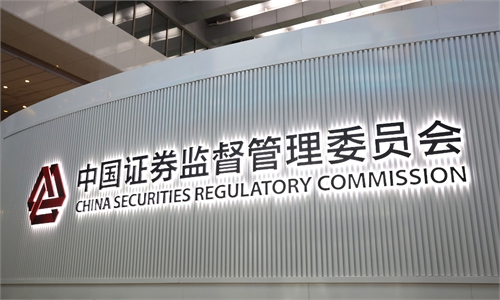Decline of foreign banks' IPO role driven by competition, not closed system: experts

A-share Photo: VCG
Market insiders said that the decline of foreign banks' involvement in IPOs in the Chinese mainland mainly reflects market competition, instead of what foreign media claim the result of a so-called closed-off financial system.
The Financial Times reported that so far this year, foreign banks have been involved in just $297 million worth of new listings, or 1.2 per cent of the total, citing data from Dealogic. The newspaper said that the proportion is lower than in any full year since Dealogic began to collect data in 2009.
Not a single US bank has been involved in the 109 IPOs in China's stock market in 2023, where a total of $26 billion has been raised to date in deals that frequently attract massive demand from domestic investors. Only Credit Suisse and Deutsche Bank have acted as bookrunners this year, the report said.
"Currently, public tenders are required for A-share IPOs of most state-owned enterprises and many private enterprises, with securities firms that are more experienced and can offer a good price more likely to win the tender. In this sense, it's mainly due to market factors if foreign securities firms underwrite fewer A-share IPOs now," a senior sponsor representative based in Beijing told the Global Times on Monday.
The person said that foreign securities firms accounted for a larger share in China's IPO market in 2017 and 2018 as a large number of Chinese firms rushed to get listed in the US and Hong Kong Special Administrative Region at that time, but they're less competitive in terms of localization.
A Chinese expert said that Chinese companies involved in underwriting competitions have gotten stronger in recent years, which put pressure on those foreign players.
There is no reason for China to limit the foreign banks' involvement in IPOs, as the Chinese government always holds an opening-up attitude toward the financial market, Dong Shaopeng, a senior research fellow at the Chongyang Institute for Financial Studies at Renmin University of China, told the Global Times on Monday.
Those foreign players could look for opportunities in small and medium-sized companies, Dong said.
Li Yunze, the head of China's National Financial Regulatory Administration, said in a meeting recently that it is hoped that foreign-funded financial institutions will fully realize the huge potential of the Chinese market, which has a complete industry chain, rich factor resources and sufficient policy space, give full play to their own advantages, and continuously improve their differentiated development and localized operation capabilities.
The policy of attracting and utilizing foreign capital in the financial industry will not change, the protection of the legitimate rights and interests of foreign capital will not change, and the direction of providing a better business environment for foreign capital will not change, Li said.
Last year, a total of 423 new A-shares were listed, with a financing amount of more than 570 billion yuan ($79.81 billion), reported 36kr.com. Although it was nearly 19 percent lower than the number of new shares for 2021, it was more than 5 percent higher than the financing amount of more than 540 billion yuan in 2021, hitting a record high.
In a report released on Friday, accounting firm PwC said that while A-share IPOs and financing had decreased year-on-year, the Shanghai and Shenzhen Stock Exchanges still ranked No.1 and No. 2 in the world in terms of fundraising.
It is estimated that, by the end of June, about 60 IPOs will have been issued on each of these exchanges. Total fundraising will be more than 100 billion yuan in Shanghai and close to 80 billion yuan in Shenzhen.
Global Times


